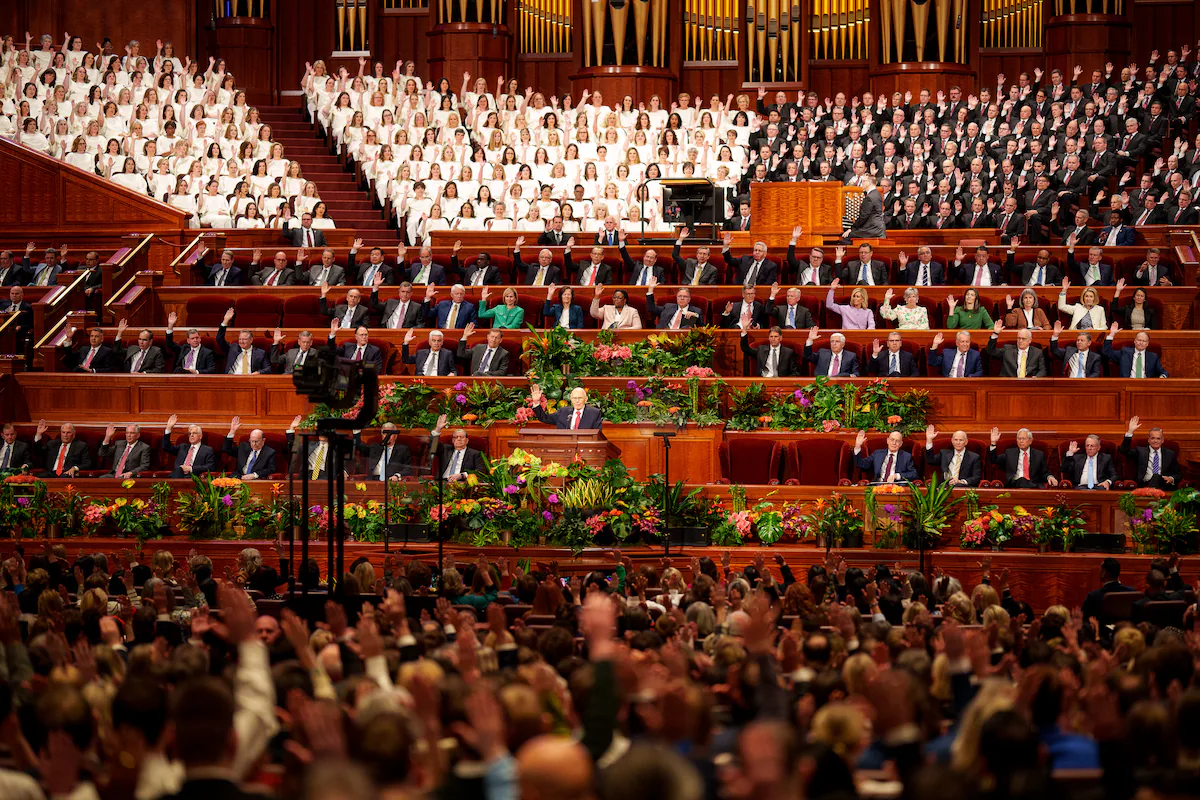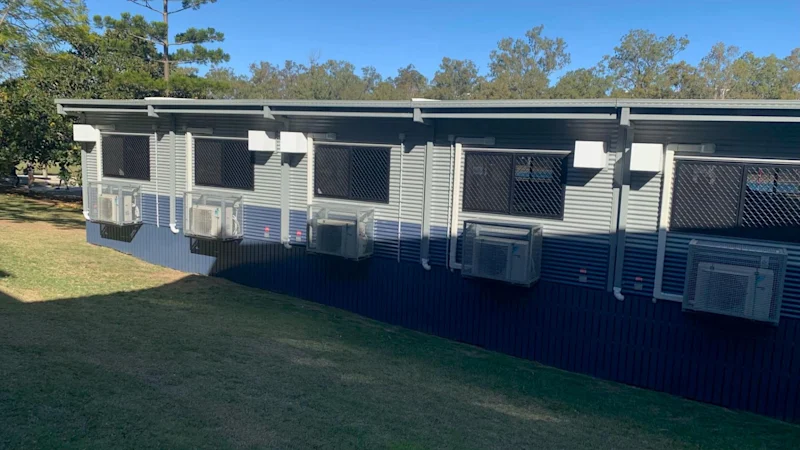
One of Russell M. Nelson’s first acts as Latter-day Saint prophet-president was to select the faith’s first apostles of color — Asian American Gerrit Gong and Brazilian Ulisses Soares.
It was a historic move by Nelson, 17th president of The Church of Jesus Christ of Latter-day Saints, one that was celebrated by members across the world.
He had one more opening during his nearly eight-year tenure, and he selected British convert Patrick Kearon.
With Nelson’s Sept. 27 death, choosing a new apostle to fill the space will fall to Dallin H. Oaks, Nelson’s likely successor.
“Apostles are chosen through inspiration by the president of the church, sustained by the general membership of the church, and ordained by the First Presidency and Quorum of the Twelve Apostles by the laying on of hands,” the church’s website explains. “In addition to serving as witnesses of Jesus Christ to all the world, as Jesus’ apostles did, members of the current Quorum of the Twelve Apostles hold the keys of the priesthood — that is, the rights of presidency [for the church].”
The quorum is the second highest governing body in the 17.5 million-member faith, a group of men who are seen by the faithful as “prophets, seers and revelators.” They are seated according to their length of service.
From the moment apostles accept their callings, they step onto an escalator that leads to the top. The man who outlives the apostles named before him will ascend to the church’s highest office.
The church faithful believe the calling of a new apostle is inspired by God. It is not based on tradition or seniority. It is not a vote or a popularity contest. It need not be announced on some predictable schedule.
In this case, the decision rests solely with Oaks — though there may be some discussion and a secret ballot among current apostles, after which the results are tallied and forwarded to the church president. There is no evidence that the faith’s female leaders are consulted.
Indeed, there is only one rule for choosing an apostle: no women.
Other than that, the selection is wide open but tends toward men who already have proved their worth and held significant church positions. Church presidents may look for younger possible apostles to bring more energy into a quorum dominated by older authorities, but they can’t afford to name someone who is untested. Thus, they are often risk averse.
Homegrown or international?
Speculation about who might be the next apostle already has begun.
In Latter-day Saint living rooms, church foyers, at family reunions, and on social media, members and ardent hierarchy watchers already are making guesses.
Will Oaks follow Nelson’s lead and choose another international apostle, or will he stay with the more tried-and-true authorities from the Wasatch Front or the West’s so-called Jell-O Belt?
In recent decades, the pool of potential apostles includes the Presidency of the Seventy, the third tier of church leadership, and the Presiding Bishopric, which oversees the faith’s vast real estate, financial, investment and charitable operations.
Of the past eight apostles, six have come from the Presidency of the Seventy: Kearon, Soares, Gong, Ronald Rasband, Neil Andersen and D. Todd Christofferson.
So could one of the current men in that Gang of Seven get the call?
After all, Carl Cook, a 67-year-old Ogden native who is president of the Seventy, spoke at Nelson’s tribute broadcast Wednesday, as did 62-year-old Presiding Bishop Gérald Caussé.
Could that be a preview of Oaks’ leanings?
Not ‘another white Utah guy’
Patrick Mason, chair of Mormon history and culture at Utah State University, does not think Oaks will go for “another white Utah guy.”
Oaks spent time in the Philippines, the historian said, and is “attuned to the growing international church and knows the church’s future is global.”
Mason also suggested that Caussé would be a strong pick.
As presiding bishop, the Frenchman has been “very successful,” Mason said. “He has passed the stress test of dealing with church finances and has managed the temple-building expansion very well.”
But Mason believes Oaks might not want to add another European apostle, which could lead him to lean toward Edward Dube, a 63-year-old from Zimbabwe and the first Black member of the Presidency of the Seventy. He would be the first African apostle.
Though they are from the United States, others have suggested either general authority Seventy Clark Gilbert, 55, church commissioner of education, or Ahmad Corbitt, 63, an African American Seventy. The latter also would be a landmark choice, given the church’s past history on race.
Given Oaks’involvement with the “Be One Celebration,” which celebrated the 40th anniversary of the church lifting its priesthood-temple ban on Black men and women, and Nelson’s work with the NAACP, commentator Emily Jensen said, “I wouldn’t be surprised if the new apostle was [58-year-old general authority Seventy] Peter M. Johnson, who is also African American.”
Added Jensen, web editor for Dialogue: A Journal of Mormon Thought: “Our Heavenly Father is acutely aware of our Black brothers and sisters.”
Kearon was “an outside pick, but someone similar to him in temperament, someone who has a joyous personality alongside a serious spirituality,” Jensen said, “makes me think of [68-year-old] Elder Marcus Nash [in the Presidency of the Seventy] or [65-year-old] Elder Kyle McKay [the church historian].”
Whatever apostle Oaks picks, Jensen believes that by the next conference, the members will see “an increase of women speakers.”
That’s because the presumed president “has long spoken about the power women have,” she said, “and their priesthood capabilities.”
It would be great, she said, to see such views in action.



